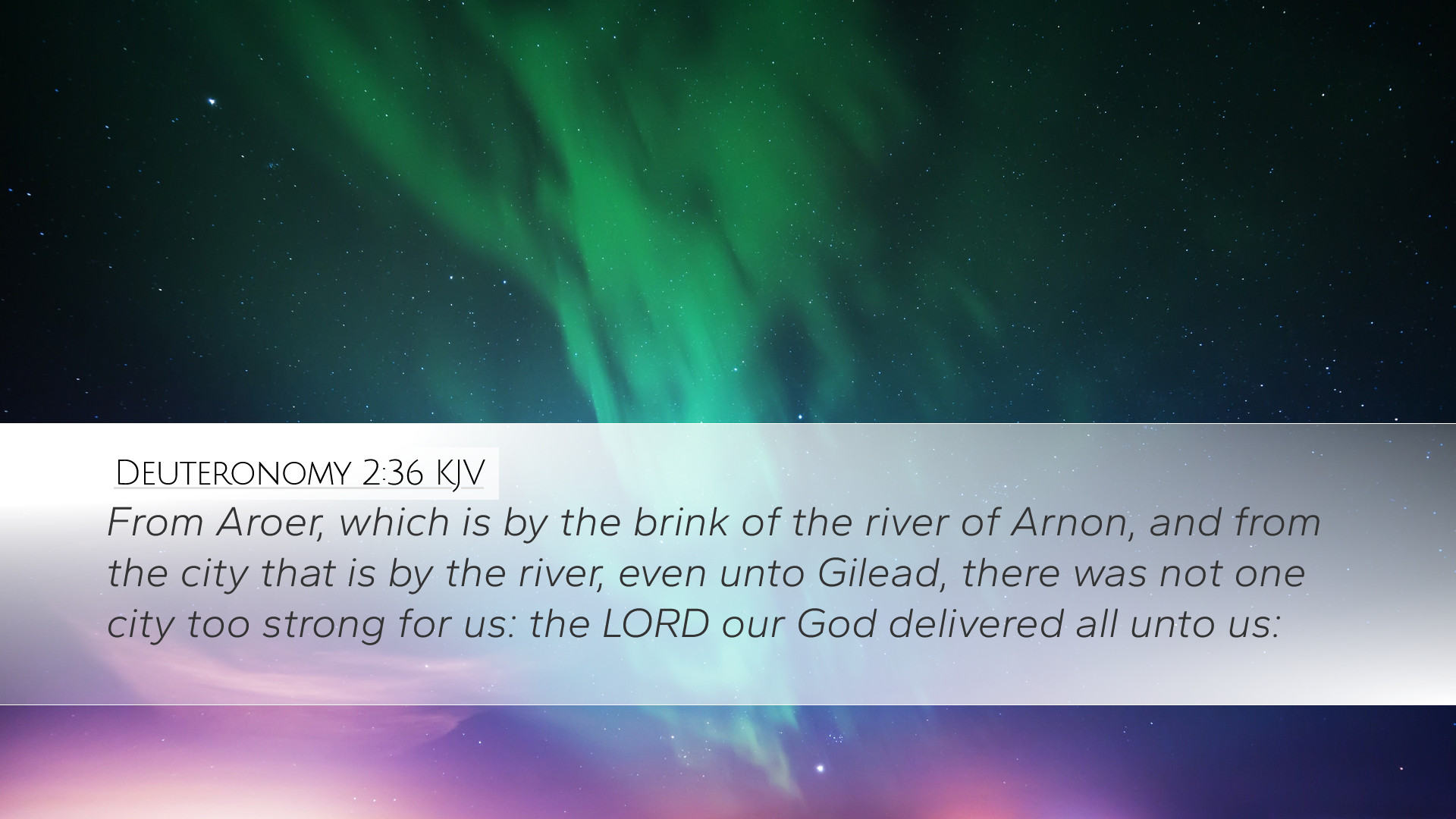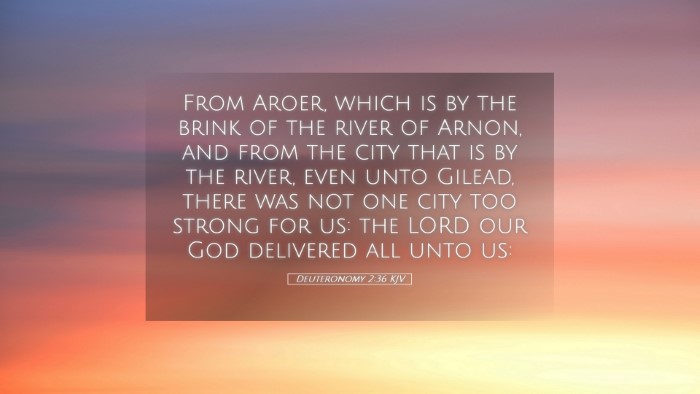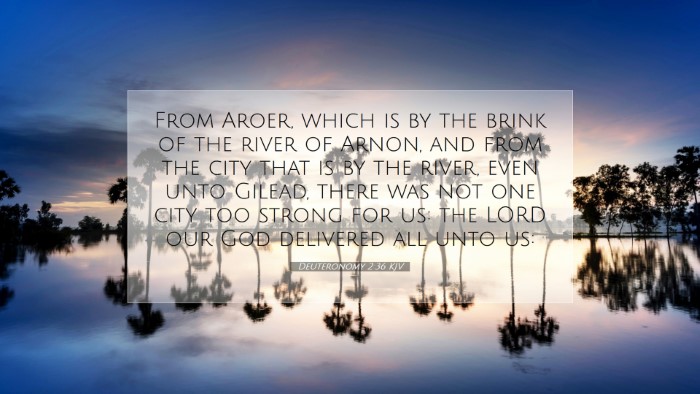Commentary on Deuteronomy 2:36
Deuteronomy 2:36 states, "From Aroer, which is by the bank of the river Arnon, and from the city that is in the river, even unto Gilead, there was not one city too strong for us: the Lord our God delivered all unto us." This verse captures a significant moment in the history of Israel as they stand on the brink of entering the Promised Land. Below, we explore insights from renowned public domain commentaries.
Contextual Background
Matthew Henry emphasizes the importance of context in understanding the triumphs of Israel. The Israelites are recounting their victories as they prepare to take possession of Canaan. Reflecting on the victories from Aroer to Gilead, Henry notes that these territories symbolize both geographical and spiritual conquests.
God’s Sovereignty in Victory
Albert Barnes reflects on the sovereignty of God in delivering the cities into the hands of the Israelites. He elucidates that it was not by their might or skill that they conquered, but by God’s direct intervention and favor. This reinforces the theological principle that true victory comes from reliance on divine power.
The Significance of Aroer and Gilead
Adam Clarke notes the geographical significance of the locations mentioned. Aroer was a stronghold on the river Arnon, while Gilead was known for its rich pastures and powerful cities. The mention of these locations illustrates the extent of God’s promises fulfilled, serving to remind the Israelites of God’s faithfulness.
Comprehensive Victory
The assertion that "there was not one city too strong for us" speaks to the comprehensive nature of their victory. Henry points out that this signifies not just physical conquest but also psychological fortitude. The Israelites were encouraged to reflect on God's power in their victories before entering into a new set of challenges.
Faith and Assurance
Barnes further elaborates on the faith aspect, indicating that recognizing past victories strengthens the Israelites' faith for current and future battles. When congregations face trials, Christians today can derive assurance from recalling past deliverances.
Theological Reflections
Clarke introduces a theological reflection on the idea of divine assistance. He states, "It is upon the principle that God fights for His people that they need not fear." This principle serves as a comforting truth for believers, emphasizing that their struggles are not undertaken alone but with divine aid.
Lessons for Modern Believers
- Recognition of God’s Hand: Just as the Israelites acknowledged God's hand in their victories, contemporary believers are encouraged to recognize God's active role in their lives.
- Faith in Challenges: The example of Israel's comprehensive victories serves as a model for Christians to trust in God during trials.
- Reflection on God’s Promises: The historical reminder of fulfilled promises inspires hope and perseverance in faith communities today.
Conclusion
In summation, Deuteronomy 2:36 is rich with insights for pastors, students, and theologians. The verse highlights God's sovereignty, the importance of faith, and the everlasting truth that God delivers His people. As the boundary between the wilderness and the Promised Land is drawn, this message resonates through generations, assuring believers of God’s providence and strength in their lives. Reflecting on this verse, each individual and community can cultivate a deeper sense of trust in God’s ongoing work.


